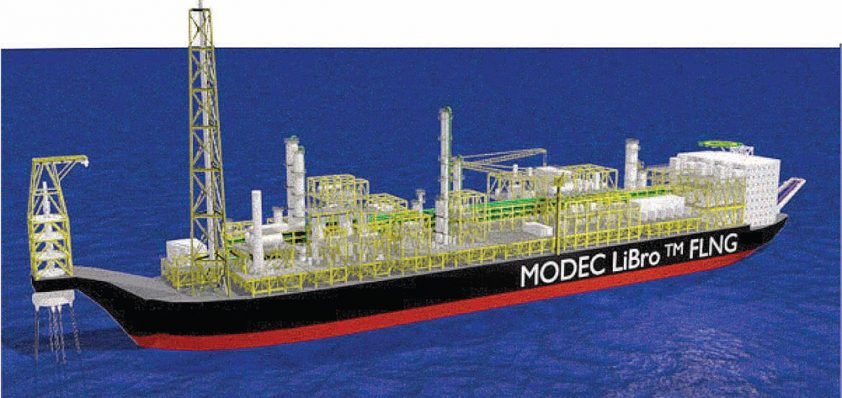
MODEC Inc.: Innovators in FPSO, FSO, and Floating LNG Solutions
Buoyed with success
MODEC Inc. (MODEC) was established in 1968 as a joint venture, funded by Mitsui Engineering & Shipbuilding Co and Mitsui & Co., Ltd.
At this time the funding companies were the leading shipbuilding and marine engineering and design company in Japan and the leading world trading company, but with the growth of commercial vessels MODEC was created to cater towards this new market. Bringing together offshore and marine technologies, MODEC’s first focus was on the design and engineering of construction vessels such as crane barges. By the mid 1970s though MODEC had moved into the designing and engineering of jack-up drilling rigs.
This opened the doors for the business to grow into other expanding industry areas such as floating production storage and offloading system (FPSO) beginning with its first contract in 1985. Since then MODEC has been awarded numerous FPSO and floating storage and offloading (FSO) contracts across the world. Other notable milestones in the quest for innovative production solutions include the company’s first Tension Leg Platform (TLP) in 1999.
Whilst its heritage is clearly a contributory strength to MODEC’s continued success, there are other factors that serve to support this reputation: “For each project we assign a key individual from our personnel that is then present at every stage from the bidding all the way through to engineering and project management. This allows for the continued seamless development of the project, as well as providing the customer with a single interface point. We also have strong financing capabilities with support from the banking sector, including the Japanese governmental body JBIC,” explains Masaki Habu, executive officer.
As the company has developed over time its activities have become divided into two distinct parts – an EPCI service to clients for the development of FPSOs to specification, and lease of MODEC’s own FPSO fleet, which currently numbers around 14 units. At this time each of these units are deployed on contract with various clients across the globe. In terms of MODEC’s marketplace, the company is widely spread geographically into almost all areas apart from Europe. “Given the mature nature of this region there are a lot of competitors that are already operating on the European market, so we see greater opportunities for MODEC in the increasingly active markets of offshore Brazil and offshore West Africa. Already we are working with major operators in these regions, including Petrobras and OGX in Brazil, and British Petroleum and Canadian Natural Resources in West Africa. However, we are also paying close attention to our established market of Asia and Oceania where we work with national oil companies such as Petronas.”
Currently MODEC is in the final stages on supplying an EPCI FPSO to BP for use in offshore Angola, as well as the conversion of two VLCC units into FPSOs for Petrobras. The first of these is scheduled for delivery at the end of 2012, with the second following in 2014. In the meantime, MODEC also has a third FPSO under construction for the Brazilian market, which will be delivered to OGX in 2013. As a design and engineering company, MODEC works closely with leading shipyards in China such as Cosco/Dalian, and in Singapore with Jurong, to deliver its construction works.
Generally requirements for FPSOs have continued to grow over the years in terms of greater functionality, as well as pressure on safety and quality in line with key industry concerns. Another particular growing specification is the low emissions and CO2 discharge policies that operators have to increasingly comply with. In its commitment to its core competency of FPSO and FSO solutions, MODEC is also embracing some of the newer technologies to emerge from this sector. One example of this is the company’s partnership with Velocys Inc and Toyo Engineering to develop and implement a small-sized Gas to Liquids (GTL) facility utilising micro channel technology, which will allow the offshore industry to capture and commercialise associated natural gas that us currently flared or re-injected into the reservoir.
With a figure of over 3000 trillion cubic feet of natural gas currently thought to be stranded, MODEC’s floating unit technology offers a tremendous opportunity in maximising the energy output from reserves. With work having progressed well over the last few years, the partners are hopeful to see the system enter the market later this year. At the other end of the scale, MODEC is embarking upon further research and development into floating liquefied natural gas (FLNG). Built around the company’s LiBro (Marinized Lithium Bromide Absorption Chiller) technology, MODEC is confident that its system poses an attractive alternative for small to mid-sized FLNGs, and is thus hopeful to have one or two of these units operating on the market in the next few years.
MODEC
Products: FPSGs and floating storage and offloading (FSOs)